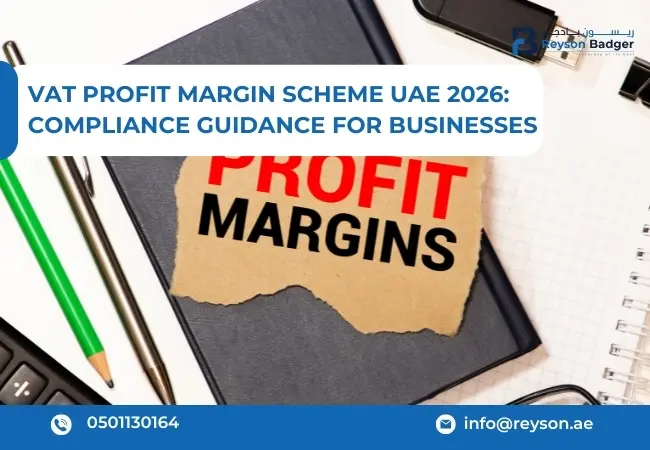Top 20 Corporate Tax Consultants in UAE
19-Jan-2026
UAE Corporate Tax Audit
The Ministry of Finance (MoF) of the United Arab Emirates (UAE) has announced a new federal corporate Tax (CT) system. This new tax system began on June 1, 2023. This change helps the UAE meet international tax standards and makes it easier for UAE businesses to comply with tax rules, while also protecting start-ups and small businesses.
Despite this shift, the UAE, particularly Dubai, renowned as a global financial hub, will maintain one of the lowest corporate tax rates in the world. Companies operating in the UAE will be required to submit mandatory corporate tax audits, ensuring transparency and adherence to the new regulations. With the support of Corporate Tax Advisory Services, businesses can navigate these requirements effectively. This new tax system shows the UAE's commitment to creating a business-friendly environment while following global tax rules, helping to keep the country's economy strong and growing.

What is a Corporate Tax Audit in the UAE?
A Corporate Tax Audit in the UAE is a crucial process that ensures companies comply with tax regulations and accurately report their tax liabilities. This mandatory audit involves a thorough review of a company's financial statements, tax returns, and supporting documents by an auditor. The purpose is to identify any discrepancies, errors, or omissions in the financial records and tax filings.
During the audit, the auditor examines whether the organization is adhering to the Corporate Tax Law and the standards set by the Federal Tax Authority (FTA). The audit process verifies that the company has settled all its tax liabilities, collected the correct amount of taxes, and paid these taxes to the authorities within the specified deadlines.
The FTA conducts these audits to ensure that taxable organizations are compliant with the Corporate Tax Law. It is mandatory for all companies meeting certain conditions to undergo this audit and adhere to the procedures established by the FTA. Failure to comply can result in penalties and legal consequences.
By conducting corporate tax audits, the FTA ensures transparency and accountability in the tax system, ensuring that all companies follow the tax laws and regulations.
Who needs a Corporate Tax Audit in the UAE?
As outlined in Ministerial Decision No. 82 of 2023, Corporate Tax Audits are required for Applicable Taxable Persons who meet specific criteria:
- In the relevant Tax Period, persons with income exceeding 50,000,000 AED (fifty million UAE dirhams) are taxed.
- Qualifying Free Zone Persons.
It's important to note that corporate tax audits in the UAE are not conducted randomly but are based on the aforementioned criteria. To steer clear of potential fines or penalties associated with tax audits, businesses must ensure full compliance with all tax regulations and laws. This proactive approach not only safeguards against financial implications but also promotes transparency and trust within the business community.
How You Can Prepare for a Tax Audit in Dubai?
Preparing for a Tax Audit in Dubai involves several key steps:
- Maintain Accurate Records: Ensure all financial documents, including invoices, receipts, and contracts, are meticulously organized and up-to-date. This will facilitate smooth verification by the Federal Tax Authority (FTA).
- Understand Tax Regulations : Familiarize yourself with the UAE tax laws and regulations to ensure compliance. This includes understanding VAT rules and corporate tax requirements.
- Review Your Tax Returns : Check your submitted tax returns for accuracy. Ensure that all taxable transactions and deductions are correctly reported.
- Implement Internal Controls: Develop strong internal controls to prevent errors and fraud, which can be critical during the audit process.
- Prepare for FTA Queries: Be ready to answer any queries from the FTA regarding your financial statements and tax filings.
By following these steps, you can ensure a smoother and more efficient Tax Audit process in Dubai.
Corporate Tax Audit Procedure in the UAE
The CT Audit procedure in the UAE follows a structured approach with distinct phases:
Selection for Audit: The Federal Tax Authority (FTA) selects companies for audits based on various criteria, including:
- Exceeding Turnover Thresholds: Companies exceeding a specific annual turnover threshold set by the FTA are more likely to be chosen.
- Industry Focus: The FTA may prioritize audits in industries with a higher risk of non-compliance.
- Significant Income Fluctuations: Large fluctuations in reported income compared to industry averages might trigger an audit.
- Random Selection: A portion of audits are chosen randomly to ensure a fair and balanced application of tax regulations.
Notification and Initial Meeting:
- Upon selection, the company receives a formal notification from the FTA or its authorized representative outlining the scope and timeframe of the audit.
- An initial meeting is then scheduled to discuss the audit process in detail, clarify required documents, and establish communication channels.
Preparing for the Audit: The pre-audit phase is important for a smooth UAE Corporate Tax Audit. Here are five things you must follow :
- Prepare audited financials, tax returns (past few years), and supporting documents (invoices, receipts, contracts, etc.) for the audit period.
- Make a detailed list of all documents provided for easy auditor reference.
- Organize documents by year and category (financial statements, invoices).
- Ensure electronic copies of crucial documents are readily available.
- Establish a knowledgeable person within your company to answer auditor questions.
Corporate Tax Audit Documentation and Record Retention
A well-organized set of documents is critical for a smooth and efficient audit. Having readily available documentation saves time and demonstrates a commitment to transparency.
- Financial Statements : Audited financial statements for the relevant period under audit.
- Tax Returns: All corporate tax returns filed for the past few years.
- Supporting Documents : Documentation to support entries in the financial statements, such as:
- Invoices (purchase and sales)
- Receipts
- Bank statements
- Contracts
- Payroll records (if applicable)
- Depreciation schedules
- Tax payment records
All audit documentation and supporting records must be retained for 7 years from the end of the relevant tax period.
Maintaining proper documentation is essential for compliance with Federal Tax Authority (FTA) regulations and ensures readiness in case of a corporate tax audit or inspection.
Audit Requirement for Free Zone Entities
Free Zone entities must prepare and maintain audited financial statements regardless of revenue size, per FTA requirements.
This is necessary for verifying eligibility as a Qualifying Free Zone Person and maintaining compliance with the UAE Corporate Tax framework.
Corporate Tax Audit Requirements for Tax Groups
Tax groups are required to maintain audited special purpose financial statements in compliance with FTA guidelines.
These consolidated statements help ensure that the parent company and its subsidiaries meet the UAE Corporate Tax reporting obligations accurately under a unified tax registration.
Audit and Compliance for Natural Persons
Natural persons with business turnover exceeding AED 1 million must register for corporate tax and maintain financial statements.
This applies to individuals conducting business or professional activities in the UAE, ensuring compliance with FTA registration and reporting rules.
UAE Corporate Tax Audit Report
Under Ministerial Decision No. 82 of 2023, Corporations are required to submit audited financial statements to ensure compliance with UAE corporate tax regulations. The purpose of these audits is to guarantee the accuracy and confidentiality of financial statements, while also providing transparency and accountability to investors and other stakeholders. The audit report will include assessments regarding accuracy and confidentiality.
Who should submit audited financial statements under the UAE corporate tax law?
Qualifying Free Zone Persons and Taxable Persons with revenues exceeding 50 million Dirhams must prepare audited financial statements for corporate tax purposes. These submitted reports are then subjected to scrutiny by the Federal Tax Authority (FTA) to ensure adherence to the country's regulations. This process not only fosters trust and confidence but also reinforces the integrity of the business environment in the UAE.
Corporate Tax Audit for SMEs (Small and Medium Enterprises)
Small and Medium Enterprises (SMEs) in the UAE face special challenges during Corporate Tax (CT) audits. They often have fewer resources, making it hard to prepare for audits. The tax rules can be complex and confusing, and keeping good records can be difficult. To handle these challenges, SMEs can get help from tax consultants and accountants who know the UAE's tax system. These experts can guide SMEs through the audit process and make sure they follow the rules. SMEs should keep good records by setting up organized systems, using digital record-keeping, and having a clear policy for keeping documents. Staying updated with news from the Federal Tax Authority (FTA) and using information from industry groups can also help. By doing these things, SMEs can be better prepared for CT audits, making the process smoother and ensuring they follow the tax rules.
Corporate Tax Audit Benefits
Corporate Tax (CT) Audits in the UAE offer several advantages for both the government and businesses operating within the country.
- Improved Tax Compliance: Corporate Tax (CT) audits help ensure companies follow the UAE's corporate tax rules. During an audit, mistakes or errors in tax calculations and reporting can be found. This allows companies to correct these errors, ensuring their tax payments are accurate. Audits also help identify missing information, prompting businesses to gather necessary documents for future compliance. Overall, the audit process promotes transparency within a company's tax practices.
- Reduced Risk of Penalties: CT audits can help businesses avoid penalties by identifying potential errors before they become serious problems. Early detection of issues allows companies to correct mistakes before the Federal Tax Authority (FTA) imposes fines. This proactive approach minimizes the risk of substantial penalties and interest charges. As a result, businesses can have peace of mind knowing their tax affairs are in order and that they are less likely to face financial burdens from non-compliance.
- Enhanced Internal Controls: CT audits offer a valuable opportunity for companies to evaluate and strengthen their internal controls related to tax matters. The audit process can reveal weaknesses in internal systems, such as poor record-keeping or insufficient oversight of tax calculations. Based on these findings, businesses can implement improvements to ensure ongoing compliance and prevent future errors. Strengthening internal controls can also streamline tax processes, saving time and resources in the long run.
- Increased Confidence from Stakeholders : A clean CT audit report can significantly enhance a company's image and credibility with stakeholders. Investors often see a clean audit report as a sign of a company's financial health and commitment to responsible business practices, which can boost investor confidence and attract new investment opportunities. Clean audits also demonstrate transparency to regulators, fostering a positive relationship with the FTA and avoiding potential scrutiny. This reputation for strong tax compliance can increase a company's overall market value and attract business partners who prioritize transparency.
Corporate tax audits and normal tax audits are similar in principle, involving a thorough examination of financial records for compliance. However, corporate tax audits specifically focus on verifying deductions, expenses, applicable laws, and the accuracy of taxable and non-taxable income reported by businesses
Corporate Tax Audit Criteria and Penalties:
Corporate tax audits are vital in ensuring businesses are compliant while keeping financial practices transparent. With a clear understanding of the audit process and its impact, companies can minimize compliance risk and keep their reputations high. Preparation before an audit earns one's trust with tax authorities and guarantees business smoothening for future times.
- Corporate tax registration penalties : From 1 March 2024, a penalty of AED 10,000 is applicable for failing to register for UAE Corporate Tax. This applies to businesses that fail to submit their Corporate Tax registration applications within the set timelines by the Federal Tax Authority.
- Corporate tax filing penalties: The Federal Tax Authority (FTA) imposes a penalty of AED 500 for the first 12 months of late filing for UAE Corporate Tax, with the penalty increasing to AED 1,000 for each subsequent month of delay. Incorrect filing, late payment, and improper records can attract penalties from AED 500 to AED 20,000 depending on its nature and severity.
To avoid penalties, businesses should make sure to register and file their corporate tax on time and accurately. Following the Federal Tax Authority’s rules will help keep things smooth and avoid extra costs.
For more information about check
How FTA and MoF Work Together in Corporate Tax Audits
The Federal Tax Authority (FTA) is the primary body responsible for implementing, administering, and enforcing corporate tax laws in the UAE. The Ministry of Finance (MoF) sets the UAE's overall tax policy and legislative framework for corporate tax. While the FTA handles enforcement, the MoF’s role focuses on the foundational aspects of tax law. The FTA and MoF coordinate their roles to create a structured and transparent tax environment:
- Implementation by the FTA: After the MoF sets policies, the FTA translates these into practical processes and guidelines for businesses to follow.
- Enforcement of Compliance: The FTA enforces the MoF’s policies through corporate tax audits and ensures that firms adhere to set standards.
- Continuous Improvement: Based on audit findings and industry feedback, the MoF may adopt policies or introduce new legislative measures, keeping the system effective and supportive of businesses operating within the UAE.
The FTA and MoF together present a transparent map to the businesses so that they understand their corporate tax liabilities and are in compliance with any audit carried out on them
UAE Corporate Tax Financial Statements
According to CT Law, the Federal Tax Authority may ask taxpayers to provide their financial statements, used for calculating taxable income, either with their corporate tax return or separately upon request. Taxpayers are generally responsible for preparing and keeping these statements. Decision No. 82 stipulates that taxpayers with revenue surpassing AED 50 million during the tax period (typically the financial year) and those benefiting from a zero-rate free zone regime (Qualifying Free Zone Persons) must have their financial statements audited by external auditors.
A taxpayer who is part of a tax group consisting of two or more UAE tax resident companies must consolidate the financial statements of each subsidiary. Subsidiary companies' financial statements must follow the same financial year and accounting standards. Taxpayers' financial statements must adhere to UAE accounting standards, primarily using International Financial Reporting Standards (IFRS). They should cover 12 months (e.g., January 1st to December 31st) unless specific circumstances require a shorter or longer period.
Taxpayers should prepare their financial statements and determine taxable income using accrual accounting unless they qualify for cash accounting, potentially available to certain individual entrepreneurs and small businesses. Additionally, CT Law mandates retaining all documents and records supporting the CT return, including financial statements, for at least seven years after the relevant tax period.
Traditionally, financial statement audits were limited to certain free zones, but an increasing number of free-zone authorities issuing trade licenses are now requiring annual external audits. With the introduction of corporate tax in the UAE, more companies may need to consider conducting annual external audits of their financial statements.
As a Free Zone accredited audit firm, Reyson Badger boasts a team of top auditors specialized in providing audit services across all Free Zones in the UAE. Our expertise positions us perfectly to deliver exceptional corporate tax audits in UAE Free Zones as well. The UAE Corporate Tax Audit Report serves as a comprehensive record of the audit and its outcomes, helping the audited company identify areas of potential tax risk and opportunities for tax compliance improvement.
FAQS
1. What triggers corporate tax audits in the UAE?
The FTA may audit companies with errors in corporate tax reports, those in high-risk sectors (like luxury goods or hospitality), or when complaints are made about possible tax evasion.
2. What documents are necessary for a tax audit?
Companies should have financial statements, tax returns, contracts, invoices, and if relevant, transfer pricing documents ready for review.
3. Can Free Zone companies be audited for corporate tax?
Yes, Free Zone companies can be audited, especially if they have earnings outside the Free Zone or don’t meet exemption criteria.
4. What should businesses do if they disagree with audit results?
If there’s a disagreement, businesses can file objections with supporting documents and work with tax consultants to clarify their case with the FTA.
Latest Blogs

Accounting System Analysis in Dubai: A Complete Guide for Businesses
Accounting System Analysis Services in Dubai and UAE, businesses gain clarity, control, and confidence in their financial operations turning accounting systems.
READ MORE →
Information System Audit for SMEs: What You Need to Know
Information System audits help UAE SMEs protect data, stay compliant, and strengthen operations for secure, sustainable business growth.
READ MORE →
Mandatory Audit Requirements for UAE Mainland Companies
Mandatory audits are required for UAE mainland companies to maintain compliance, ensure transparency, and support sound financial reporting.
READ MORE →
VAT Profit Margin Scheme UAE 2026: Compliance Guidance for Businesses
The VAT Profit Margin Scheme in UAE 2026 allows eligible businesses to calculate VAT on profit margins instead of full selling prices, ensuring simplified compliance and reduced tax burden.
READ MORE →
Business License Issuance and Renewal Services: What You Need to Know?
A practical guide to business license issuance and renewal in the UAE, including steps, timelines, and key requirements.
READ MORE →
Top Mistakes Tourists Make While Claiming VAT Refund in Saudi Arabia
Tourists often lose their VAT Refund in Saudi Arabia due to small mistakes. Discover common errors and tips to claim your refund successfully.
READ MORE →
UAE VAT Compliance Calendar: Key Deadlines and Filing Dates
A complete UAE VAT compliance calendar highlighting key VAT filing deadlines, return due dates, and important timelines to help businesses avoid penalties.
READ MORE →
VAT Assessment and Compliance Services in UAE: Key Risks, Obligations, and Best Practices
This blog explains VAT assessment and compliance services in the UAE, covering regulatory obligations, common compliance risks, and best practices businesses must follow. Learn how proper VAT reviews, accurate filings, and transaction assessments help avoid penalties and ensure alignment with Federal Tax Authority (FTA) requirements.
READ MORE →
How VAT Refund Schemes in Saudi Arabia Compare with UAE & Other GCC Countries?
Explore how VAT refund schemes in Saudi Arabia differ from the UAE and other GCC countries. This blog compares eligibility, processes, timelines, and compliance requirements, helping businesses and tourists understand key refund opportunities and regional VAT recovery strategies.
READ MORE →
Accounts Outsourcing Services in Dubai: What Every Business Owner Should Know
Accounts Outsourcing Services in Dubai cover essential finance functions through a structured and professional workflow, compliant, and financially organized.
READ MORE → The Federal Tax Authority (FTA) has announced that businesses must complete Corporate Tax registration within 90 days from the Date of Incorporation / MOA.
The Federal Tax Authority (FTA) has announced that businesses must complete Corporate Tax registration within 90 days from the Date of Incorporation / MOA.




